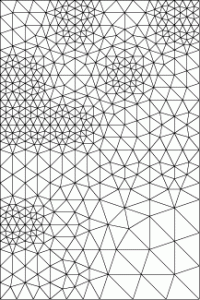Donald Davidson argued that descriptive theories of semantics suffered from untenable complications that could, in turn, be solved by a holistic theory of meaning. Holism, in this sense, is due to the dependency of words and phrases as part of a complex linguistic interchange. He proposed “triangulation” as a solution, where we zero-in on a tentatively held belief about a word based on other beliefs about oneself, about others, and about the world we think we know.
 This seems daringly obvious, but it is merely the starting point of the hard work of what mechanisms and steps are involved in fixing the meaning of words through triangulation. There are certainly some predispositions that are innate and fit nicely with triangulation. These are subsumed under The Principle of Charity and even the notion of the Intentional Stance in how we regard others like us.
This seems daringly obvious, but it is merely the starting point of the hard work of what mechanisms and steps are involved in fixing the meaning of words through triangulation. There are certainly some predispositions that are innate and fit nicely with triangulation. These are subsumed under The Principle of Charity and even the notion of the Intentional Stance in how we regard others like us.
Fixing meaning via model-making has some curious results. The language used to discuss aesthetics and art tends to borrow from other fields (“The narrative of the painting,” “The functional grammar of the architecture.”) Religious and spiritual terminology often has extremely porous models: I recently listened to Episcopalians discuss the meaning of “grace” for almost an hour with great glee but almost no progress; it was the belief that they were discussing something of ineffable greatness that was moving to them. Even seemingly simple scientific ideas become elaborately complex for both children and adults: we begin with atoms as billiard balls that mutate into mini solar systems that become vibrating clouds of probabilistic wave-particles around groups of properties in energetic suspension by virtual particle exchange.
Can we apply more formal models to the task of staking out this method of triangulation?… Read the rest